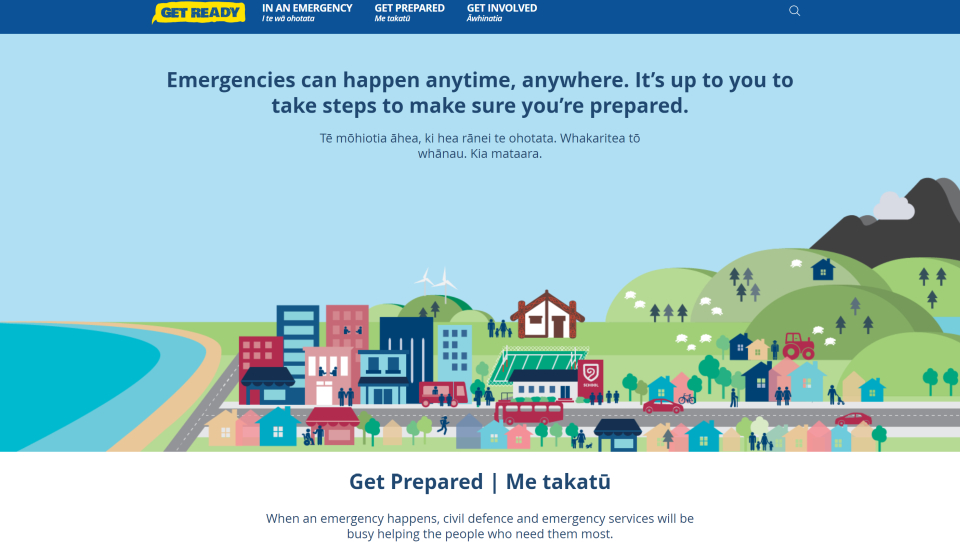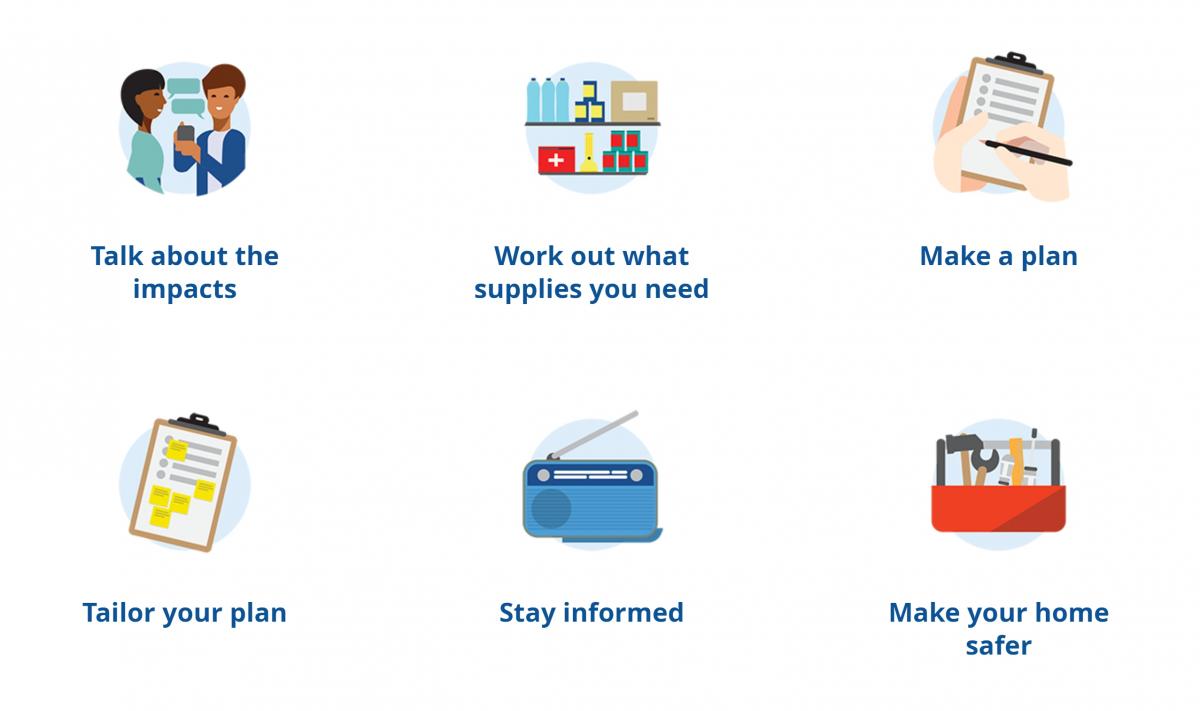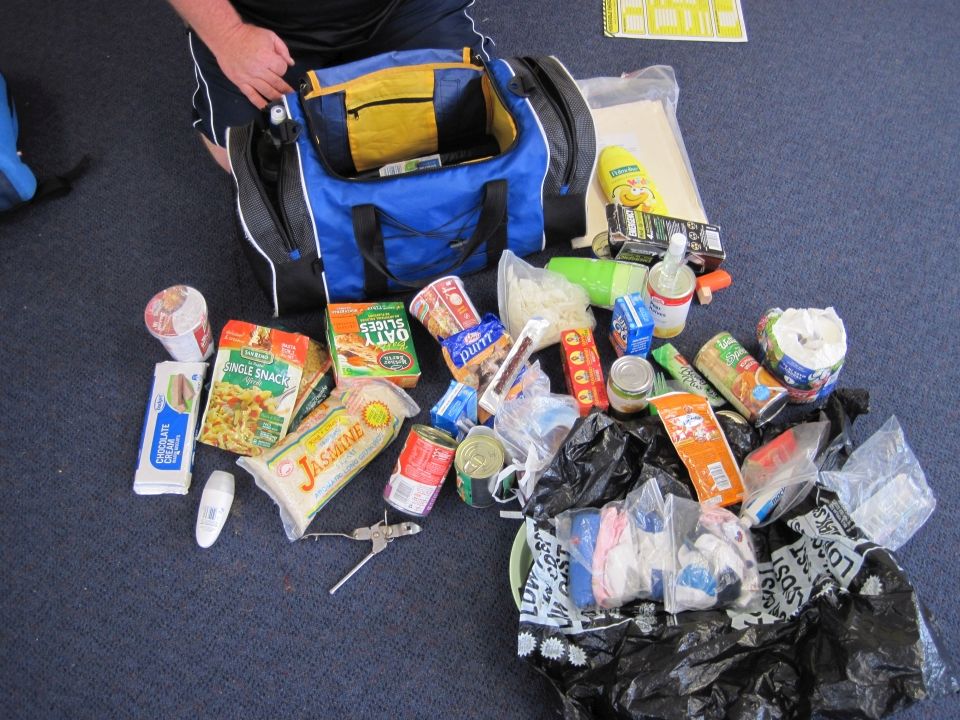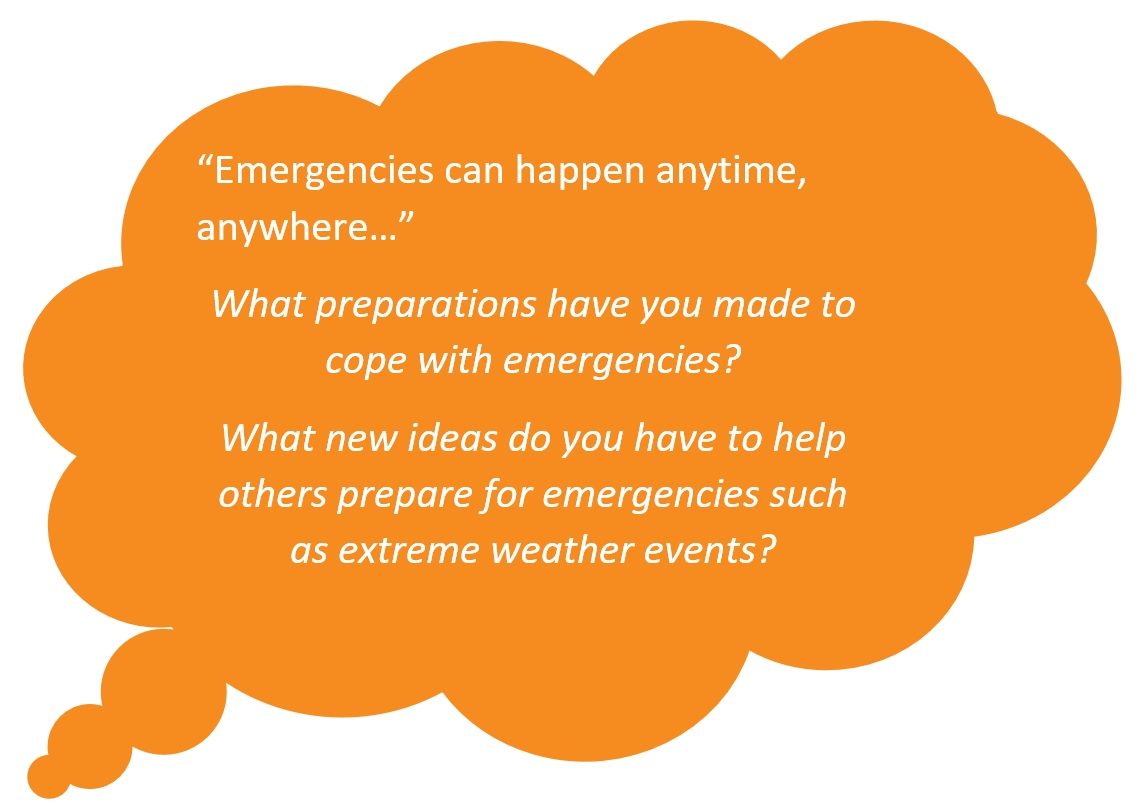You can contact LEARNZ, part of CORE Education, at:
Postal Address:
PO Box 13 678,
Christchurch 8141,
New Zealand

Make and practise your emergency plan with your family, and make sure you and your family each have a grab bag and emergency supplies.
Stay up to date with the latest weather information from MetService. Ask your parent or caregivers to pay attention to weather watches and warnings.
Your local council may be able to give your family more information on ways to reduce potential flood damage to your home.
During a flood, put safety first. If you see rising water, tell an adult. They should take you to high ground without an official warning. Take your grab bag with you in case you need your emergency supplies. If you have to leave, take your pets with you — if it’s not safe for you, it’s not safe for them.
Stay away from floodwater, as it may be contaminated and can make you sick. Never try to walk, swim or drive through flood water, it may be moving quickly and can sweep you away.
If you live on a farm, ask your family if they know which paddocks are safe to move livestock away from floodwaters, landslides and power lines. Ask an adult at home to find out from your local council what the flood risk is in your area.
After a flood, only return home after Civil Defence and emergency services have told you it is safe to do so. It may not be safe to return home even when the floodwaters have gone. Look before you step. After a flood, the ground and floors may be slippery or covered with debris, including broken bottles and nails.
If you see a landslide, move quickly out of its path and stay away from it. Make sure you tell an adult and ask them to evacuate if your home is in danger – take your grab bag and pets with you if you can. Ask an adult to warn the neighbours if they can, and contact emergency services and your local council.

Ask your family if you have materials and tools ready to repair windows, such as tarpaulins, boards and duct tape. Help look for a safe place in your home for your family to gather during a thunderstorm. This should be a place where there are no windows, skylights, or glass doors, which could be broken by strong winds or hail and cause damage or injury.
Be aware that floods and landslides can be triggered by storms. Make sure you and your family know what to do.
When a storm is forecast, remind an adult at home to bring inside or tie down anything that can be broken or picked up by strong winds. If you have a trampoline, turn it upside down to minimise the surface area exposed to wind or tie it down. Ask an adult to remove any debris or loose items from around your property. Branches and firewood may become missiles in strong winds.
Bring pets indoors. Many animals are unsettled by storms and it is more comforting and safer for them to be with you.
During a storm, stay inside. Don’t walk around outside and tell your family to avoid driving unless they absolutely have to. Close windows and doors, and pull curtains and blinds over windows. Ask an adult to stay up to date by listening to the radio or by following your local Civil Defence Emergency Management Group online. Follow the instructions of civil defence and emergency services.

 If you live in a region at risk of snowstorms, ask your family if they have alternative forms of power and heating. Remind an adult to check fuel supplies for woodburners, gas heaters, barbecues and generators.
If you live in a region at risk of snowstorms, ask your family if they have alternative forms of power and heating. Remind an adult to check fuel supplies for woodburners, gas heaters, barbecues and generators.
Tornadoes sometimes occur during thunderstorms in some parts of Aotearoa. Know the warning signs for tornadoes.
If you see a tornado funnel nearby, tell others at home and take shelter immediately. If your house does not have a basement, move to an inside room with no windows or doors on the ground floor. Get under sturdy furniture and cover yourself with a mattress or blanket.
Complete the Preparing for severe weather events quiz.
> Discover more about weather and severe weather events.